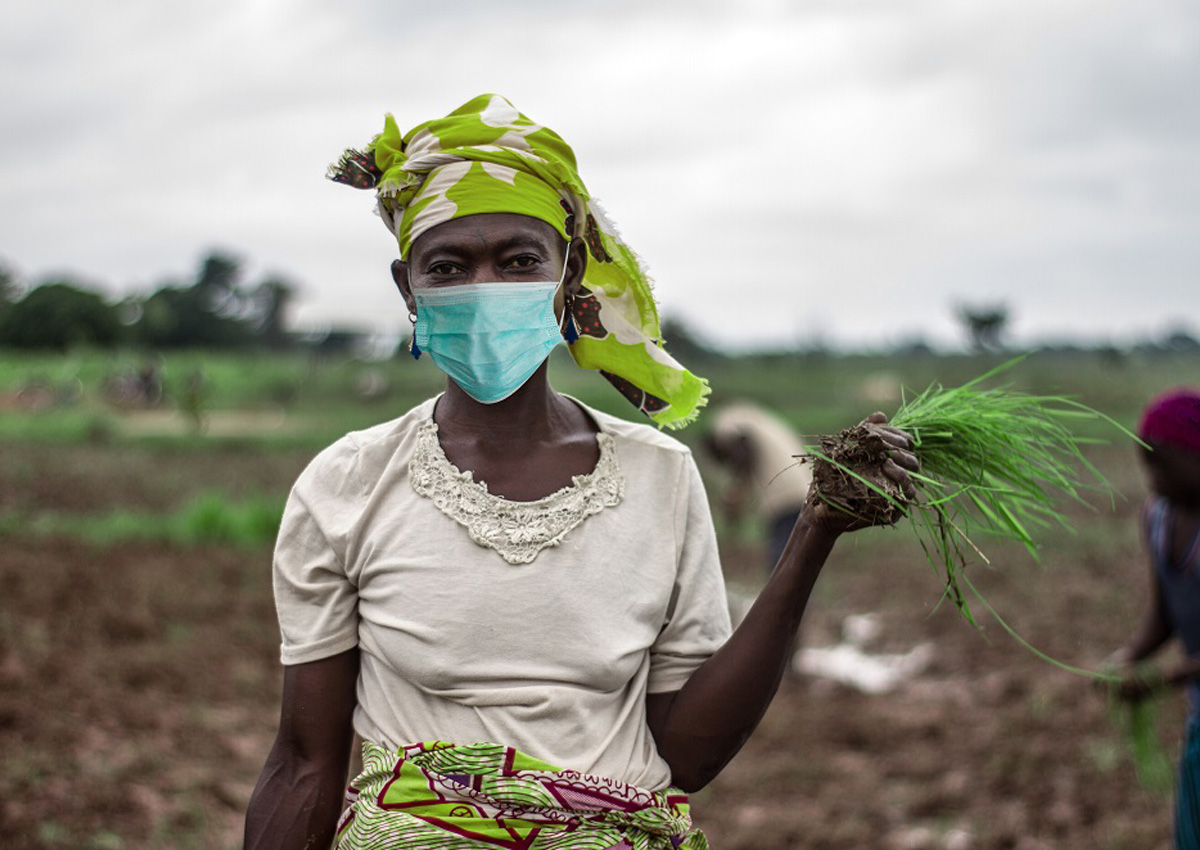
Research Highlights COVID-19 Impacts on Food Security in Kenya and Uganda
September 23, 2020| |
Scientists from the Centre for Agriculture and Bioscience International (CABI) have conducted a new research that highlights the impact of the COVID-19 pandemic on food security in Kenya and Uganda. Two-thirds of those surveyed have experienced economic hardship due to the pandemic. From a random sample of 442 respondents, the researchers led by Dr. Monica Kanslime found that the proportion of food insecure people increased by 38% and 44% in Kenya and Uganda, respectively.
The survey was conducted online questionnaires using WhatsApp, Facebook, Telegram, Twitter, and email. The researchers also found that in both countries, the regular consumption of fruits decreased by around 30% during the COVID-19 pandemic compared to before the crisis struck. Respondents mentioned other COVID-19-induced social challenges such as restricted movements, interrupted work schedules, mental health issues, and isolation aside from income effects.
Dr. Kansime said that although the COVID-19 pandemic has caused detrimental effects on all economic sectors, farmers are more likely than salary and wage earners to report suffering income shocks. "Potential explanations include difficulties for farmers to go to farms, access inputs, or transport their produce to markets due to COVID-19 induced lockdown. Compared to salary and wage-earning workers, the farmers in this sample earned relatively low incomes. Consequently, even a small shock to their income-earning activity could cause devastating effects," she added.
For more details about this study, read the article in CABI News.
| |
You might also like:
- Food Security Expert Says COVID-19 Pandemic Calls for Reassessment of Food Systems
- FAO, IFAD, World Bank, and WFP Joint Statement on COVID-19 Impacts on Food Security and Nutrition: Countries Must Work Together to Ensure Food for All
- A Call to Action for World Leaders: Prevent Global Food Security Crisis in COVID-19 Fight
Biotech Updates is a weekly newsletter of ISAAA, a not-for-profit organization. It is distributed for free to over 22,000 subscribers worldwide to inform them about the key developments in biosciences, especially in biotechnology. Your support will help us in our mission to feed the world with knowledge. You can help by donating as little as $10.
-
See more articles:
-
News from Around the World
- FAO Facilitates Agri-food Systems Transformation of Cities Worldwide
- Ugandan Farmers Want Bt Maize to Address Fall Armyworm Challenge
- 10 New Genes Identified for Resistance to Stripe Rust Disease
- Research Team Turns to Wild Crop Relatives in Climate Change Battle
- Scientists Identify New Resistance Gene to Potato Disease that Caused Irish Famine
- Bt Cotton Increased Farmers' Produce by 10-Fold in China
-
Research Highlights
- E. coli Bacteria Offer a Path to Improving Photosynthesis
- Scientists Analyze Whole Genome Sequence of Water Buffalo, Cattle for Domestication Signatures
-
Plant
- CRISPR-Cas9 Reveals Genes Involved in Rice Heading Date
- Transgene-free PDS Mutants in Potato Generated
- TALENs Used for Genome Editing of an Algal Biodiesel Candidate
-
Health
- Research Highlights COVID-19 Impacts on Food Security in Kenya and Uganda
-
Read the latest: - Biotech Updates (October 8, 2025)
- Gene Editing Supplement (September 24, 2025)
- Gene Drive Supplement (February 22, 2023)
-
Subscribe to BU: - Share
- Tweet

